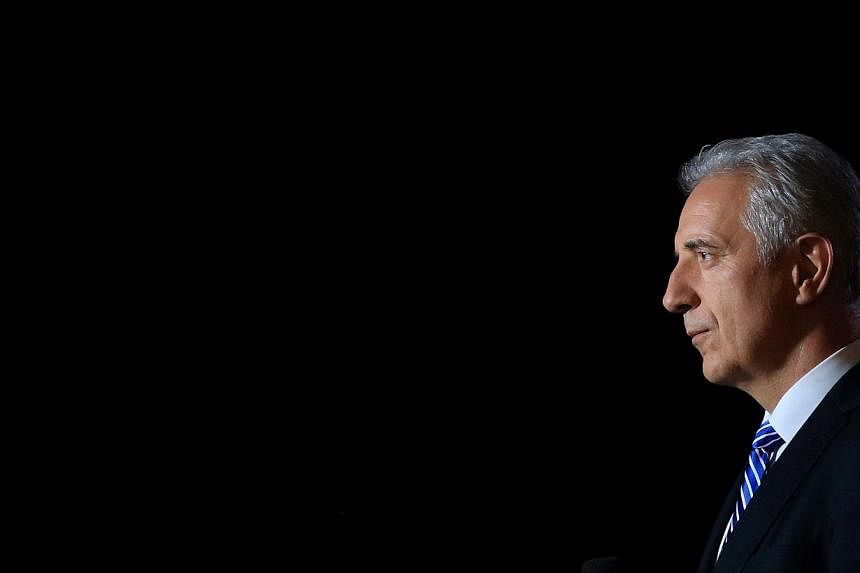BERLIN (AFP) - German Chancellor Angela Merkel's conservatives notched up a clear win in a state election on Sunday but now face opposition from a fledgling anti-euro party which won its first seats in a regional assembly.
Dr Merkel's Christian Democrats (CDU) won more than 39 per cent of the vote in eastern Saxony state parliament, according to preliminary results, but the party will need to find a new coalition partner after its current allies crashed out.
Marking its debut into a state assembly following its leap into the European Parliament in May, the Alternative for Germany (AfD) party, which backs the dissolution of the euro, won around 9.6 per cent, the initial results showed.
The CDU has ruled in Saxony since Germany's 1990 reunification. But its current coalition partners, the pro-business Free Democrats (FDP), failed to pass the 5 per cent threshold of votes to re-enter the state parliament. This means the FDP will lose its last regional government membership, after having also being kicked out of the national parliament last year.
Saxony's CDU state premier Stanislaw Tillich has avoided ruling out any possible tie-up with the AfD, but such an alliance seems unlikely as it would flout the party line.
Dr Merkel twice in the past week said the AfD, as a coalition partner, was out of the question for her conservatives.
The AfD, which narrowly missed out on entering the German parliament in last September's general elections, was set up by economics professor Bernd Lucke, a former CDU member, early last year. It also wants an end to EU bailouts and for Germany to return to its once beloved Deutschmark.
"It's time for a new party in Germany," Prof Lucke said on ZDF television as the first results came in.
Dr Merkel positioned herself as the single currency's champion during the eurozone debt crisis when Germany financed the lion's share of bailouts for stricken nations, demanding strict austerity measures in exchange.
AfD lead candidate Frauke Petry, 39, a trained chemist and mother of four, had sought to put family issues at the fore of her campaign, calling for couples to have more children and for a tightening of the abortion laws, as Germany's population is rapidly ageing.
The party has also called for a referendum on the building of mosques with minarets in Saxony.
The vote in Saxony state was the first regional legislative election since Merkel's triumphant return for a third stint at the helm of Europe's top economy in last September's general election.
The economy of Saxony, which borders both Poland and the Czech Republic, is one of the most dynamic of Germany's ex-communist states, hosting big car producers and earning the nickname "Silicon Saxony" as a microchip centre.
As Germany approaches the 25th anniversary of the fall of the Berlin Wall, the Saxony ballot is the first of three former eastern state votes in quick succession, followed by neighbouring Thuringia and Brandenburg on September 14.

